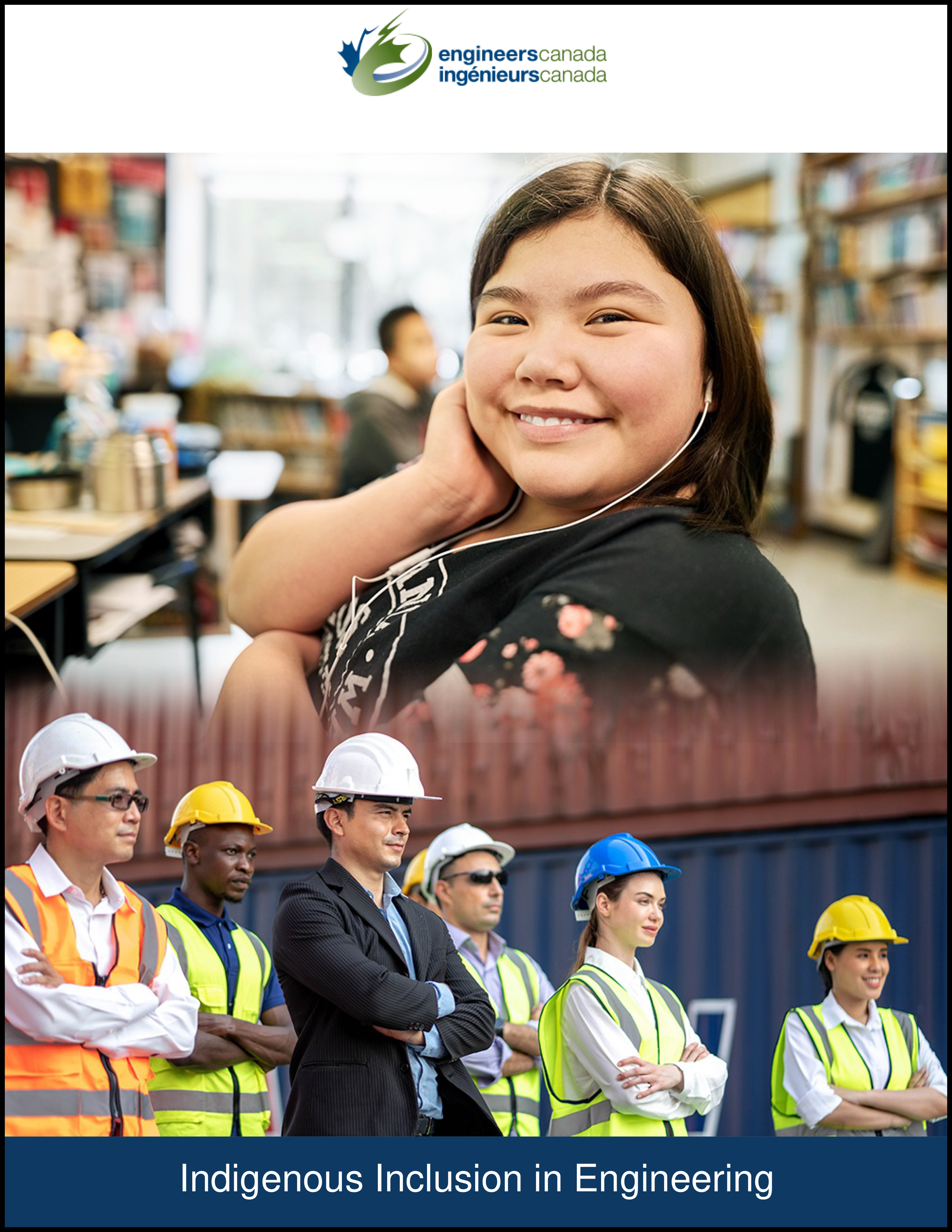
Published: June 2022
Executive summary
In 2019, as part of Engineers Canada’s work on equity, diversity, and inclusion, Engineers Canada approved the Operational Imperative 9 sub-strategy on Indigenous access to engineering. This sub-strategy includes a goal of collecting data on Indigenous engineering students and professionals in Canada. To meet this goal, Engineers Canada has worked with Big River Analytics to design and undertake a survey of the membership of three regulators—Engineers Geoscientists Manitoba, Engineers and Geoscientists BC, and the Association of Professional Engineers and Geoscientists of Saskatchewan (APEGS)—who volunteered to participate in this pilot research project. The survey was designed to explore the characteristics and experiences of Indigenous engineers across the three jurisdictions from their formative years, that is, their upbringing and early education, right through to their professional experiences.
Based on these findings and on qualitative survey responses of Indigenous engineers, we provide considerations for how best to support increased Indigenous inclusion in the profession, improve supports, and reduce barriers to Indigenous engineers in their experiences in formative years and post-secondary education.
This report and project has been guided by the advice of Engineers Canada’s Indigenous Advisory Committee, and builds on a previous report analyzing secondary data: “Indigenous engineering in Canada: Analysis of secondary data to support Engineers Canada's Operational Imperative 9 sub-strategy: Indigenous access to engineering” (2020).
